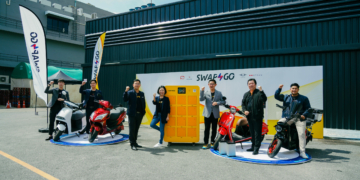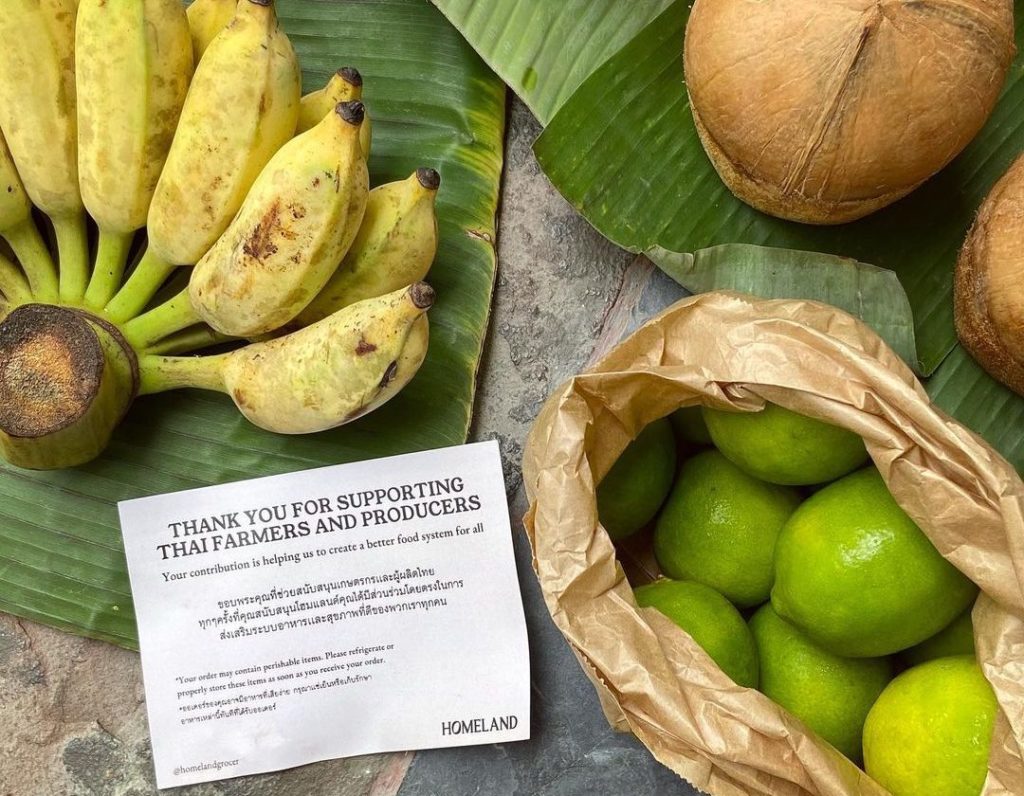
For Pattaraporn Salirathavibhaga and Natnicha Burapachaisri, Homeland Grocer — or HOMELAND — was a long time coming. Launched in the summer of 2021, HOMELAND sees themselves as more than just an online grocery store. What started as endless hours of late night conversations between two friends is now a “lifestyle brand based on responsible production and consumption” that’s hoping to tackle the big challenges within Thailand’s agricultural industry.
The goal is simple: to create a healthy, equitable and resilient food system in Thailand. The current situation, on the other hand, not so much. Though agriculture plays a major part in the country’s development (the sector alone employs around 30 percent of total labor force, according to United Nations Thailand), it is also an industry that often takes advantage of its own workers, sending many below poverty line and into debt. The majority of today’s farmers are powerless, often taken advantage of by unethical middlemen, leading to a vicious cycle where they’re unable to scale up or make the best choices for themselves.
We talk to the two women behind HOMELAND who are hoping to change that by giving more power to one of the country’s most vulnerable groups.
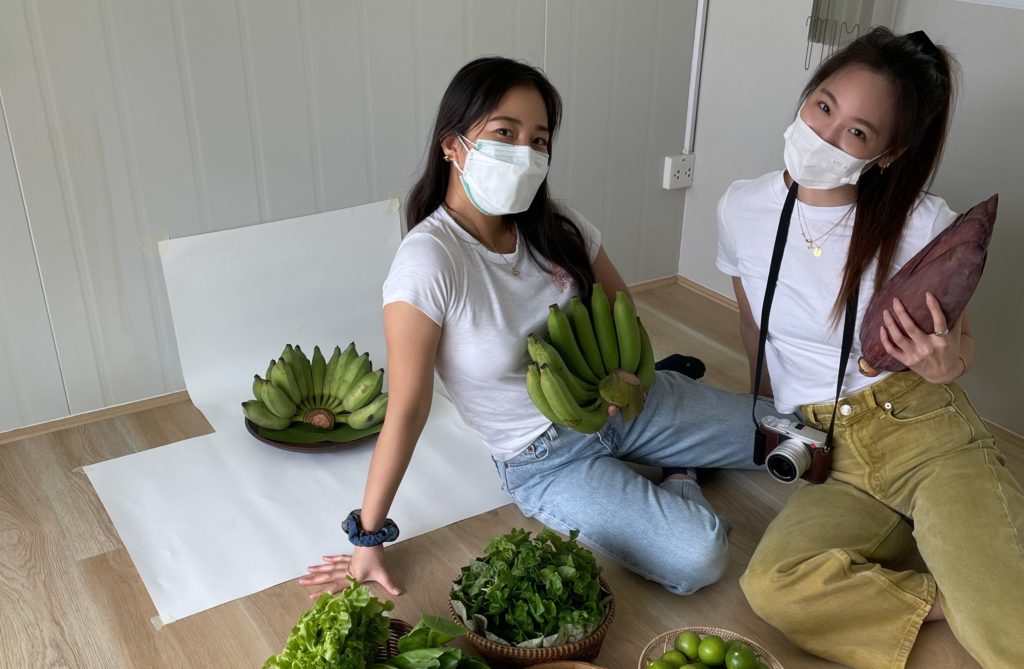
Let’s start from the beginning! Have you always been interested in the agricultural and food system?
Nat: To be honest, not always, but the more I read up on socio-economic and environmental topics — together with my conversations with local farmers and producers I’d meet on my personal trips — the more I saw how interconnected the issues our country is facing are. Many of them link back to our agricultural and food systems. Once I saw this connection, I began to do more in-depth research on Thailand and the global food systems — but I’m by no means an expert!
Tess: Ironically, I became invested in Thai agriculture when I was living in New York and regularly visited farmers’ markets and farms upstate — something I overlooked while living at home. The farm-to-table concept that many restaurants were adopting and the emphasis on sustainable agriculture and its effects on nutrition, economic development and the environment became topics I felt very strongly about. Our farmers grow some of the most flavorful, playful, and unique agricultural products in the world; I don’t want Thai people to overlook something so special that’s so readily available for us the way I once did.
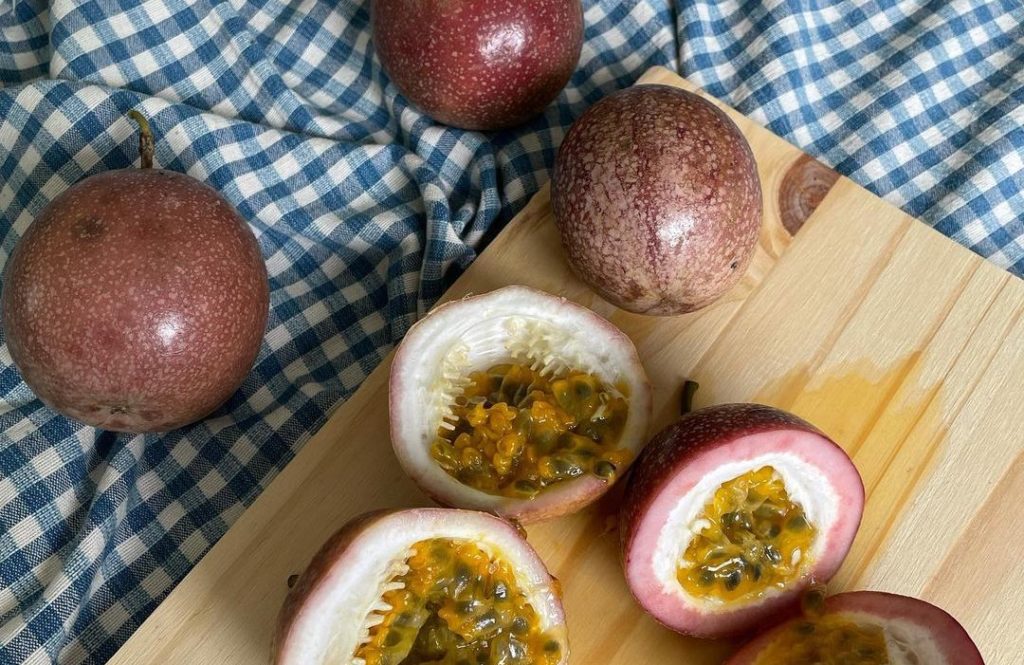
We’re curious to learn more about your research. When you decided to start HOMELAND, what did you notice in the market?
Nat: I saw a market gap in Thailand, but more so through the perspective of “What solution can a business offer to a developmental problem in Thailand?” Tess and I found that most businesses were not implementing what we thought were the best solutions to these interconnected issues. That led us to start HOMELAND — something that would not only fill that gap but also tackle the issues present in Thailand’s food system in the long run. We also felt that our business model would demonstrate that you don’t have to work in the public sector to make an impact: any player in the private sector can choose to do something no matter how big or small.
What are some observations you’ve made from talking to Thai farmers?
While there are many Thai farmers and producers still trapped in the vicious cycle of modern commercial agriculture, there are a lot of incredible farmers and producers who have shifted their practices and are trailblazers in the movement towards a more sustainable and self-sufficient system.
Many — not all — farmers we’ve spoken to need longer-term support and will from the private and public sectors to shift to more sustainable practices, while maintaining consistent market access.
What’s uplifting is we’ve come across more and more players that are helping to create a better food system for our country; these include chefs, restaurants, organizations and brands that are really doing the work but often don’t get half the recognition they deserve from the public. The main issue that all these players still face is market access.
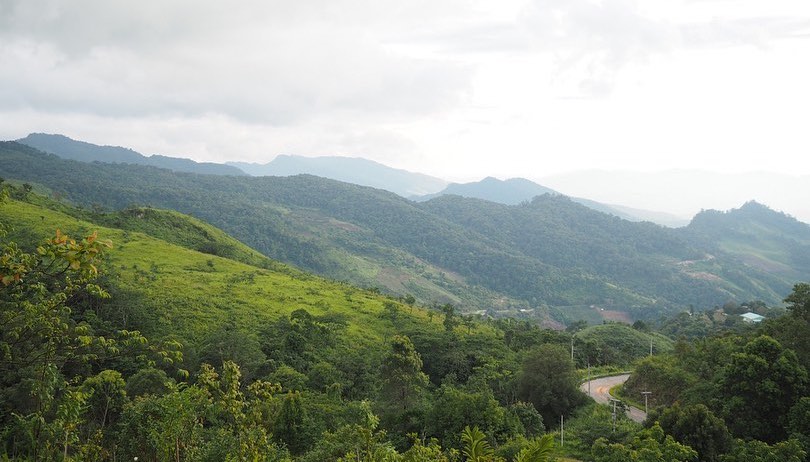
Tell us a more about how HOMELAND works. How do you source your produce?
We got to know some farmers from visiting farmers’ markets and going on trips. Many of the groups we’re working with now were also introduced to us by the Thailand Organic Consumer Association (TOCA). We spent months getting to know many of the farmers we work with, so some will introduce us to their friends whom they think we’d be interested in partnering with, which is awesome!
Who do you choose to work with?
We work with local farmers, producers and groups that we share common values with, which is why we spend a lot of time getting to know each other and building trust first. Many of the farmers we work with have been taken advantage of by unethical middlemen and businesses in the past, so we’re very careful with the partnership and solutions we offer our partners. We always start a relationship with open and transparent communication — it’s really key for us to listen and learn from them. At the end of the day, our partners also have to choose us!
Most of our partners are organic farmers who have PGS, but organic certification is absolutely not a defining factor for us. We also support small-scale and family farmers who are transitioning or have not yet fully transitioned to organic or regenerative agriculture, so that they can become strong enough to improve their practices. We simply have to be transparent to our customers about where the food comes from.
What has been a big challenge for HOMELAND?
The main challenge for us is targeting both sustainable production and consumption. We put in extra work to make sure our model serves both our partner farmers and producers, and our consumers. Change from the production side and consumption side (consumers’ behaviors) have to go hand in hand to create lasting impact in our community.
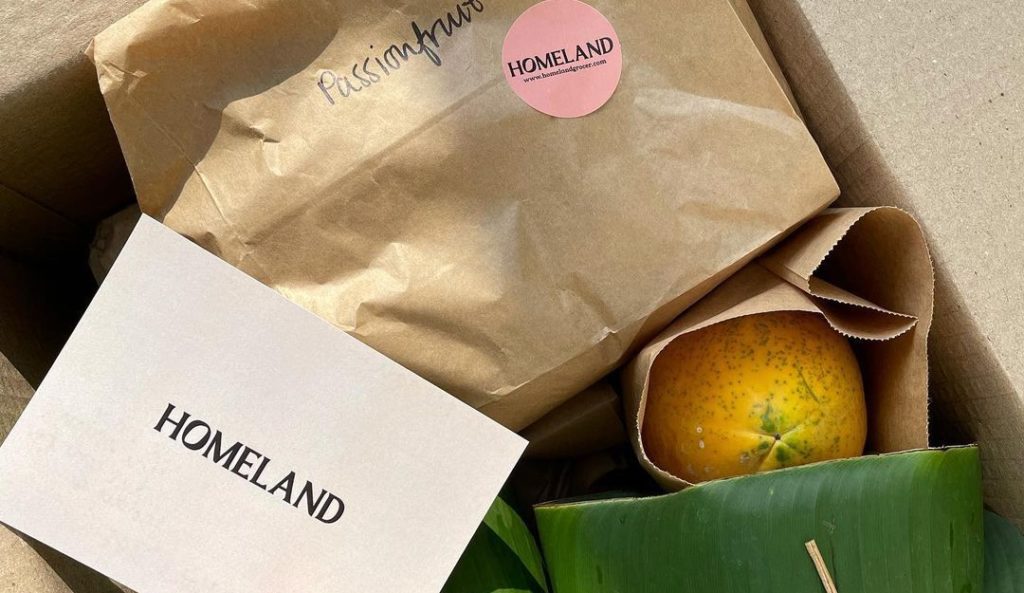
Proudest moment so far for you both?
Earlier this year, farmers’ markets closed abruptly due to the worsening Covid crisis so we made the decision to sell via social media channels before our main website was ready in order to help our farmers as soon as possible. Having to quickly adapt, to launch in a way that was completely different from our original plan during the worst Covid wave, and getting an overwhelmingly positive response from both consumers and our farmers is something we will always be incredibly grateful for. Thinking of that frenzied moment vs. now where our farmers’ raw honey from Chiangrai is being used by a Michelin-starred restaurant just feels so surreal. It’s only the beginning for HOMELAND but we’re so excited for a new future of food for Thailand.
Writer: Uracha Chaiyapinunt (@urachac)




